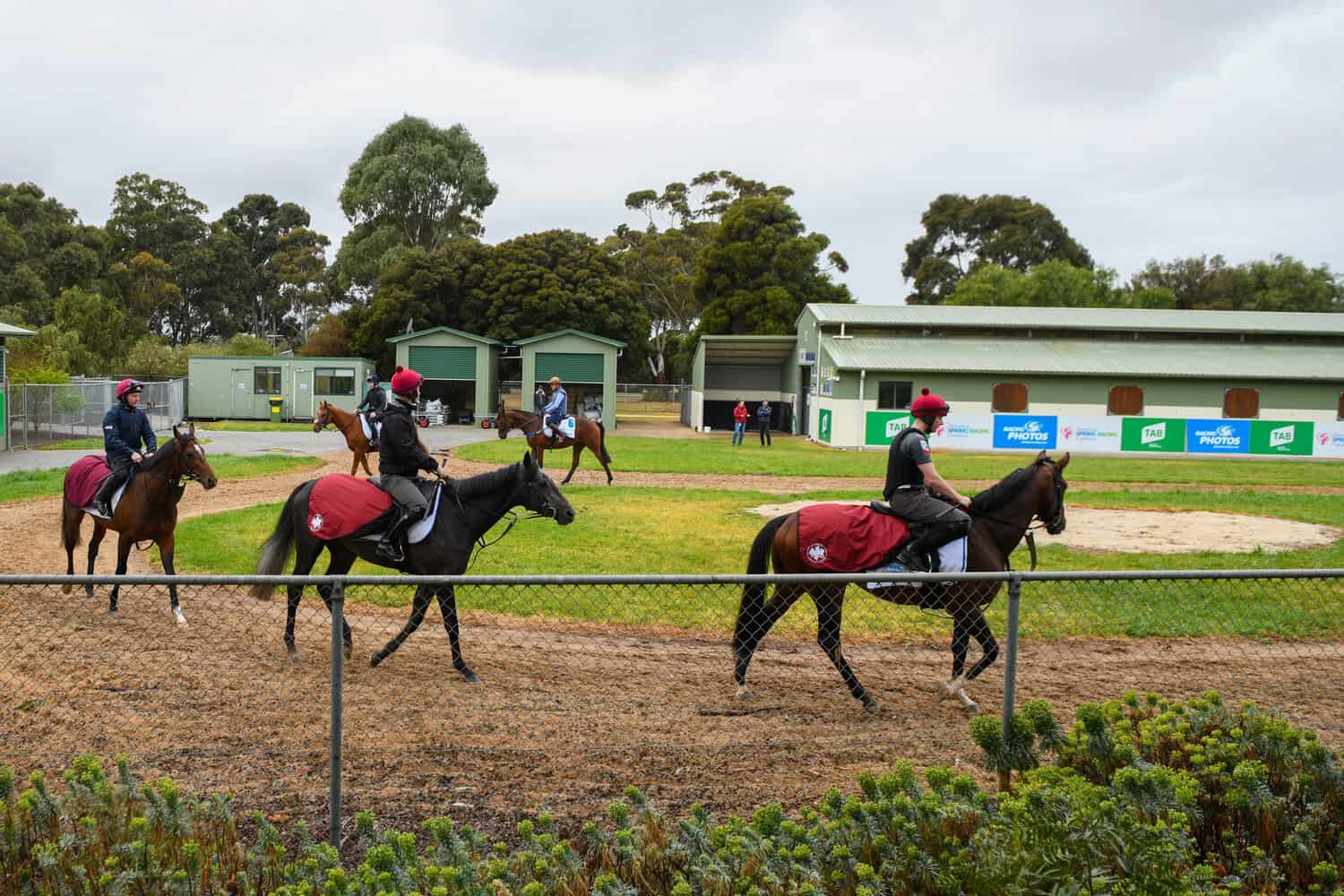The more anaeroplasmataceae bacteria the better, finds new research.

Picture: Vince Caligiuri/Getty Images
What comes from a horse and sounds like a bell? Dung! That corny old gag came to mind when news broke last week that dung might reveal which racehorses are better than others.
There have long been punters who carefully watch runners walk around a parade ring, hoping to spot one plopping droppings onto the neatly manicured ground. That’s the horse the desperate souls will then proceed to wager their money on.
It’s a method that has been known to work – occasionally – but the latest theory about pony poo has nothing to do with such wild superstition.
Anaeroplasmataceae
Researchers at the University of Surrey in the UK say pointers to the potential of a racehorse can be found by analysing bacteria in a month-old thoroughbred foal’s gut.
Racing Post reports that the scientists analysed 438 faecal samples from 52 foals, who eventually went into training at 27 different stables in Britain, and tracked veterinary issues and racecourse performance from birth to the age of three.
They identified a higher abundance of a specific bacteria – anaeroplasmataceae – was associated with a higher official rating, and increased levels of bacillaceae at 28 days old was linked to higher race placings.
The more diverse the gut bacteria in a month-old foal, the fewer health problems, particularly respiratory diseases, it would likely have in later life, the researchers discovered.
Health and performance
Professor Chris Proudman of the university’s veterinary department commented: “Minimising the risk of disease and injury is important for the welfare of racehorses, and maximising their athletic potential is important for their owners.
“We have found that gut health, in particular the health of gut bacterial communities very early in life, exerts a profound and enduring impact on racehorse health and performance.”
Kirsten Rausing, a leading thoroughbred breeder and owner in Europe, sponsored the study and reckons the findings are important.
She said: “This groundbreaking study has identified the importance of gut health in our very young foals. As breeders, if we can get this right, we will produce foals who will be healthier, and that will grow into more successful racehorses.”
That’s all well and good, but us lowly punters are going to need access to this information as we search for winners and before we invest our hard-earned coin.
The local Computaform carries more arcane information about runners than any other form guide in the world. How soon before it starts recording the levels of anaeroplasmataceae detected in each nag’s poo when it was 28 days old?
Download our app




